The Bavaria Ticket: Unlimited Train Travel Across the German State of Bayern
In this guide, we explain all you need to know about the Bavaria Ticket (Bayern Ticket) for unlimited train travel across the state.
German trains
Those who have travelled before in Germany might have come to the realisation that train travel can be expensive when bought last-minute at the station, especially when travelling the length of the entire country.
Train travel in Germany doesn’t have to be expensive, however.
Especially when you solely travel within the territory of one of the 16 Federal German states which make up the country there are some great deals which you can use.
In all of these German states there are state tickets which allow for unlimited usage of (most) trains, metros, trams and buses for a surprisingly low amount of money.
Especially when travelling together with a friend or partner, as family, or as part of a larger group, these tickets are excellent value.
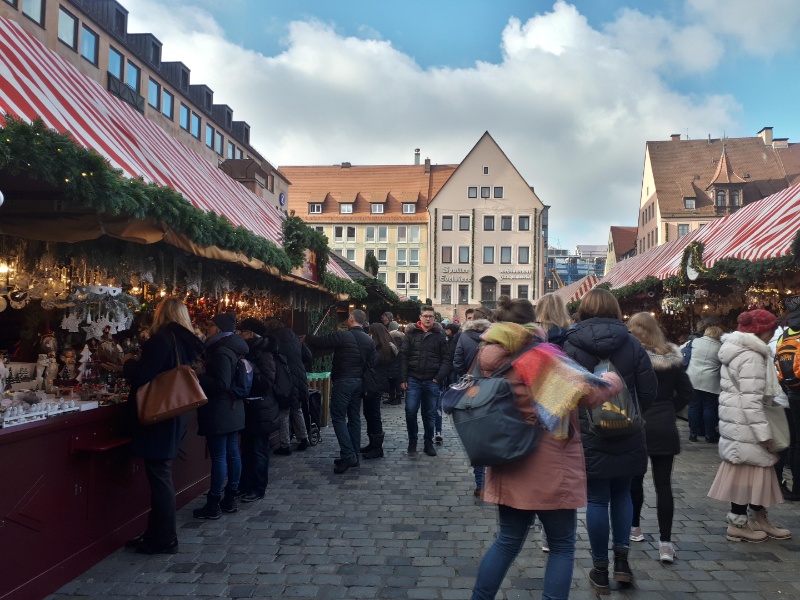
Bavaria ticket
In this guide, we will take a look at the ‘Bayern Ticket’ (Bavaria Ticket), which allows for unlimited train rides within the state of Bavaria on your date of travel.
The workings behind other state tickets is very similar to the Bavaria Ticket, although prices and conditions can vary slightly.
The Bavaria ticket costs just 25 EUR for one person, 32 EUR for two persons travelling together, 39 EUR for three, 46 EUR for four and finally 53 EUR for five people travelling together (the maximum group size on a ticket).
When travelling with six passengers, you would thus have to buy two Bavaria Tickets for three persons (or one ticket for two, one for four passengers – which adds up to the same final amount).
Children up to 5 years old always travel free of charge along with a person having a Bavaria Ticket.
If the ticket is used by up to 2 persons, one person can take any number of own children or grandchildren under 15 years with them free of charge, but if there are more than 2 paying persons, 6 to 14-year-olds pay the regular fare.
The ticket prices mentioned above are for a 2nd class Bavaria Ticket.
If you want to travel first class, a Bavaria Ticket for one person costs 37.50 EUR, 56.50 EUR for two persons, 75.50 EUR for three, 94.50 EUR for four and finally 113.50 EUR for five persons travelling together.

Other conditions
Although a Bavaria ticket does give you unlimited travel through the state, there are some conditions which you should be aware off.
If you but a Bavaria Ticket for a weekday, your ticket is only valid from 9am until 3am the following day.
If you must travel during the morning rush hour on a weekday, you cannot use your Bavaria Ticket and must buy a different ticket instead.
On weekends and public holidays, the Bavaria Ticket is however valid the entire day from midnight until 3am the following day.
Full terms and conditions can be found at the Bavaria Ticket page of the German Railways.
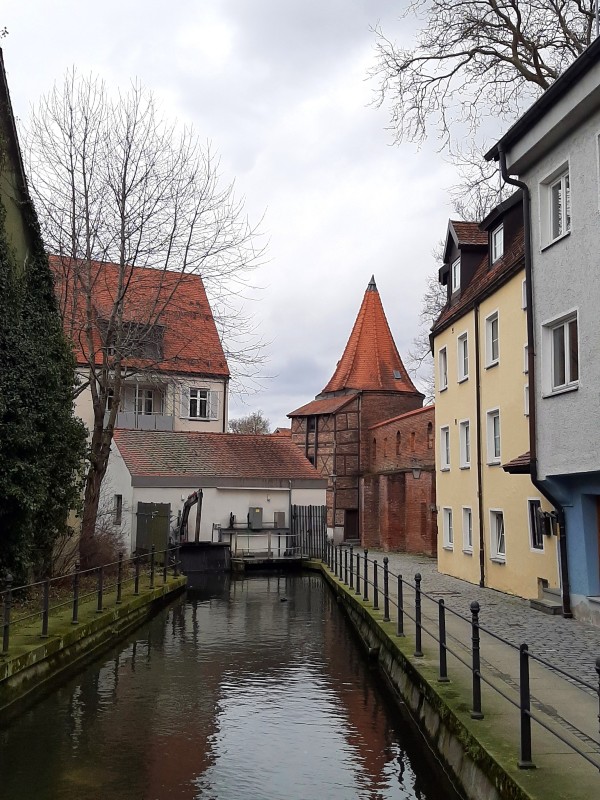
Buying a Bavaria ticket
You can also easily buy your Bavaria Ticket online through the link above, which saves you the hassle of having to deal with the at times complicated ticket machines at German railway stations.
If you buy your ticket online, you will receive your Bavaria Ticket in .pdf form.
It is not needed to print this, as you can also show the ticket on your mobile phone to the conductor during a ticket check.
When buying a Bavaria Ticket, it is however a must to write down the name of the passenger.
When buying the ticket online the name of the person travelling will be mentioned on it automatically, but if you buy your ticket at the station you must fill in the name(s) by pen.
Conductors do at times ask for identification to check if the names match.
This is a measure implemented by the German Railways to prevent people re-selling their tickets to others after having used it.

Which trains can you take with a Bavaria Ticket?
The other major condition of the Bavaria Ticket which you should be aware off is that you cannot take premium trains such as the high-speed ICE (InterCity Express) service, as well as IC (InterCity) and EC (EuroCity) trains.
This also counts for sleeper trains, Railjet (RJ) trains to Austria and Hungary, as well as the TGV service from Munich west across Bavaria towards Baden-Wuerttemberg and France.
You can however take all local and regional transport modes. These are among others:
– IRE (InterRegio Express), RE (Regional Express) and RB (Regional Bahn) train services which only stop at the major regional stations
– ALX (Alex – Die Länderbahn), which is a regional Bavarian train operator
– BLB (Berchtesgadener Land Bahn), another regional train operator
– BOB (Bayerische Oberlandbahn), another regional train operator
– BRB (Bayerische Regiobahn), another regional train operator
– M (Meridian), another regional train operator
– S-Bahn (Stadtbahn – or city railway), urban train services stopping at all stations
– U-Bahn (Untergrundbahn – literally: underground railway) in the Bavarian cities with a metro network (Munich and Nuremberg)
– All city tram networks (Strassenbahn – literally: street railway) in Bavaria (Munich, Nuremberg, Augsburg and Würzburg)
– Almost all buses in the state of Bavaria
You can take as many trains, trams and buses as you like on your travel date – as long as they fall within the duration of your Bavaria Ticket!
All these services feature unreserved seats, so you can just hop on any train you like and take any seat you want.

How to search for rail connections?
The above abbreviations might sound like a lot to take in, but they will be of use when you search for train connections between different cities and towns in Bavaria.
If you want to plan your journey, the only website you need to remember is the German Railways route planner, which also comes in the form of a great app on your smartphone.
When using a Bavaria Ticket, it is important to check the box “only local transport” in the search parameters, as this way only trains on which your Bavaria Ticket is valid will show up in the search results.
You will get your share of RB, RE, ALX and other train services as you might probably see, while connections on ineligible IC and ICE trains are filtered out automatically.
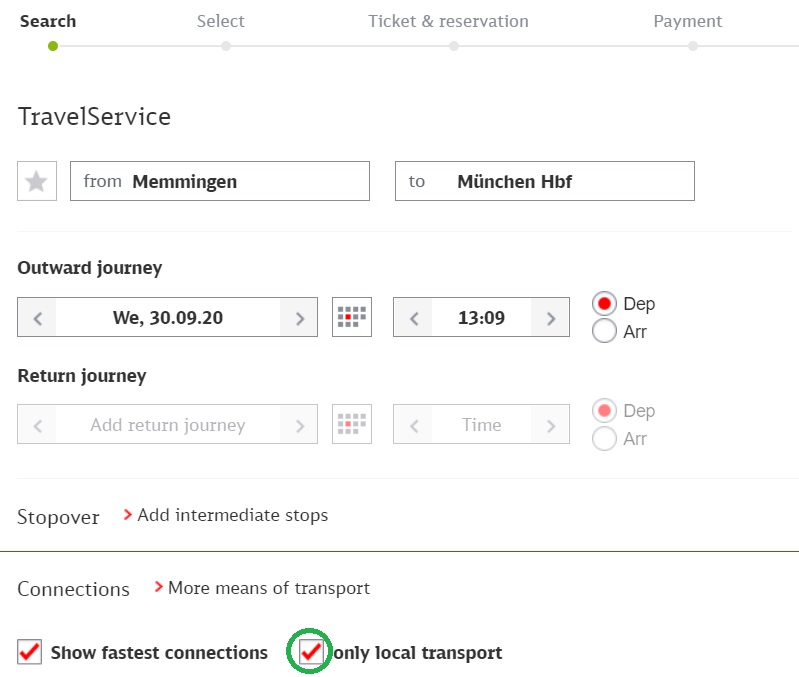
Live updates
Besides being great for planning journeys in advance, the German Railways route planner also gives live updates if you search for trains running right at this exact moment.
You can easily check whether the train you are about to take is running on time or might be posting a small delay, or whether the departure track at the station might have changed.
Any possible disruptions, deviations or replacement services due to track works are also shown here.
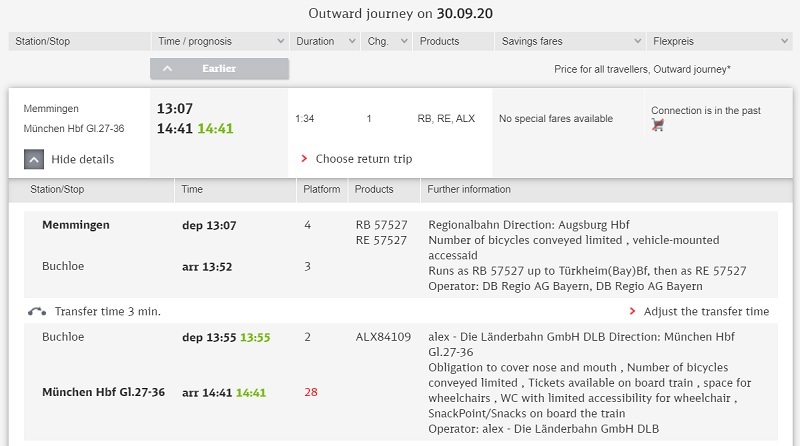
Destinations just outside Bavaria
The normal Bavaria Ticket also covers travel to some stations just outside the Bavarian state borders.
With a Bavaria Ticket in hand, you can travel as well to Salzburg, Kufstein and Reutte in Austria.
It is also possible to use a Bavaria Ticket to travel to the city of Ulm in the German state of Baden-Wuerttemberg.

Night ticket
There are a few other variations of the Bavaria Ticket which you can buy.
To begin with, there is the so-called ‘Bayern Ticket Nacht’ (Bavaria Ticket Night).
This ticket is at 23 EUR for one person slightly cheaper than the normal Bavaria Ticket, but is only valid from 6pm until 6am the following day (or 6pm until 7am the following day on Fridays, Saturdays and public holidays in Bavaria, with the exception of 8th August).
Into the Czech Republic?
Another variant of the Bavaria Ticket is the ‘Bayern-Böhmen Ticket’ (Bavaria-Bohemia Ticket).
This ticket is the same as a normal Bavaria Ticket, but also allows you to travel into the Bohemian borderlands within the Czech Republic.
This includes popular Czech destinations such as Plzen (Pilsen), Karlovy Vary (Carlsbad) and České Budějovice (Budweis). You can find a map on which train lines are included in the Czech Republic here.
You can buy the Bavaria-Bohemia Ticket in the DB Regio Ticket Shop.
It currently costs 28 EUR for one person, 35.60 EUR for two people travelling together, 43.20 EUR for three, 50.80 EUR for four and 58.40 EUR for five travellers.
Do note that you cannot travel to or from Prague using a Bavaria-Bohemia ticket.
In this case, it is best to compare normal train prices between the German Railways website and the Czech Railways website, which often works out cheaper.
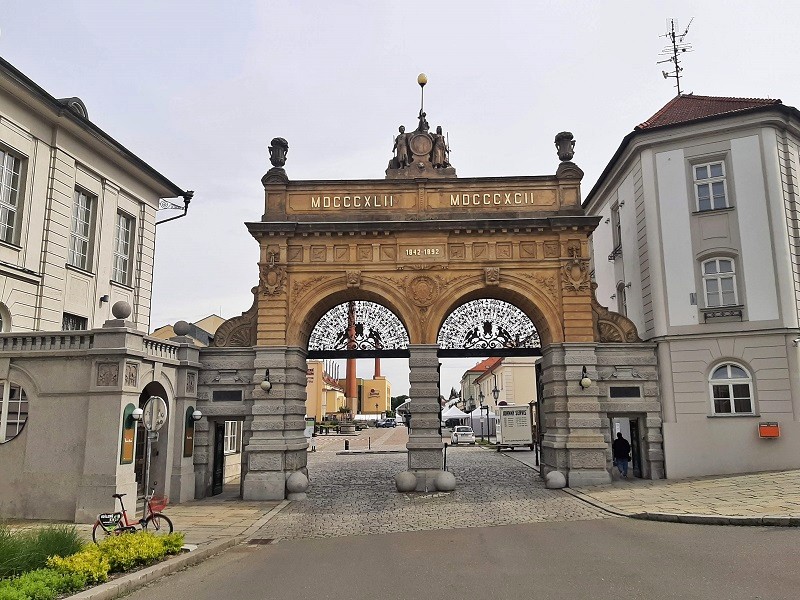
Other regional tickets
If you think there cannot possibly be more tickets, then you are vastly underestimating the Germans and their love of overcomplicating things.
That said, from a traveller’s perspective this isn’t necessarily a bad thing as some tickets are handy additions or can save you a couple of euro.
There are six more regional Bavarian Tickets which only cover a certain part of Bavaria.
If you only plan to do some limited travels within a certain geographical region in Bavaria, these can work out cheaper than a normal Bavaria ticket.
Some of these tickets also cover parts outside of Bavaria. Take for example the Franconia-Thuringia Ticket.
Although this ticket only includes the Franconia region of Northern Bavaria (cities such as Nuremberg, Bamberg etc.) – it also allows you to hop into the neighbouring state of Thuringia as far north as Leipzig!
In a similar way, the Main-Spessart + Frankfurt Ticket allows you to travel from the Bamberg-Würzburg region in Bavaria as far as Frankfurt am Main in the state of Hesse.
These tickets are however often limited to certain Regional Express (RE) lines only outside the state of Bavaria, so check the terms and conditions carefully.

A real-life example
Enough theory! Let’s head to Bavaria and show you a real-life example how you can use the Bavaria Ticket.
Even when you just need to travel between two points within the state, it can often be cheaper to buy a Bavaria Ticket than a normal one-way or return ticket.
Having spent a pleasant time in the surprisingly nice town of Memmingen, I had to move onward across the state of Bavaria to my last destination on my trip: Landshut.
The normal fare for a ticket between Memmingen and Landshut is 37 EUR for a so-called ‘Flexpreis’ (flexible fare) ticket – although you would be mad to buy one. Instead, I just bought a Bavaria Ticket for 25 EUR – which meant that I could use the 12 euro saved on some beers.
This doesn’t mean that a Bavaria Ticket is always the best option.
If you only travel for a short distance, a normal Flexpreis ticket may well be cheaper than 25 EUR.
If you travel for a long distance within the state (eg. Aschaffenburg to Munich) you might want to pay a wee bit more for an advance saver fare (called ‘Sparangebot‘ or ‘Sparpreis‘ in German) on a high-speed ICE or IC train, which not only gives you more comfort but will also be substantially faster (2h44 on a direct ICE compared to 4h40 when taking RE trains, having to change twice in Würzburg and Nuremberg).
Do however note that unlike the fully flexible Bavaria Ticket or Flexpreis tickets (which allows you to take any train you want, basically) you must take the train departure you booked with a saver fare ticket and cannot hop on an earlier or later train.
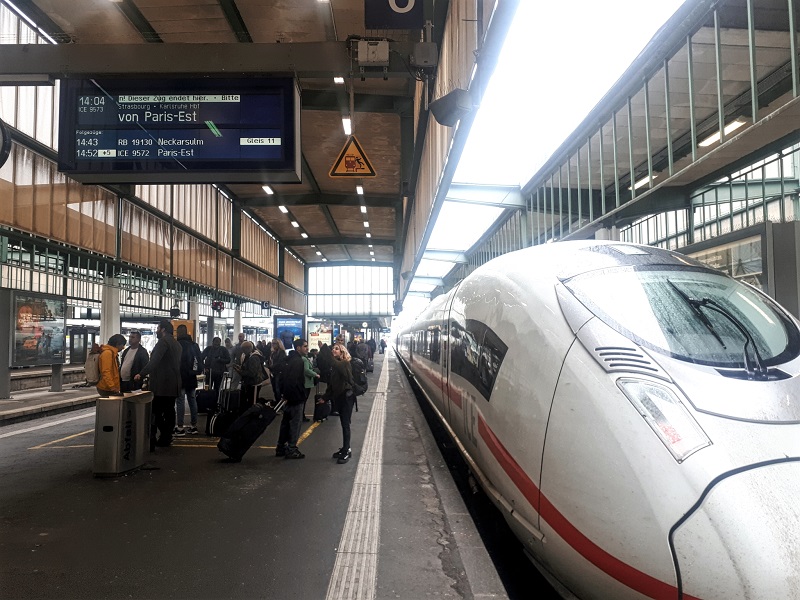
Departing Memmingen
The great aspect of having a Bavaria Ticket is that you don’t have to worry about having to get to the station in time for a certain departure.
That said, it is a good idea to check train times in advance so you won’t have to wait for too long at the station, which is especially smart when travelling on a railway line which might only have one train departure an hour.
It would of course be wasted time if you arrive 5 minutes after an hourly departure and have to wait 55 minutes until the next train!
I managed to plan my journey perfectly, arriving at Memmingen station 10 minutes before the departure of my train, which left me with plenty of time to buy a beer at the station kiosk.
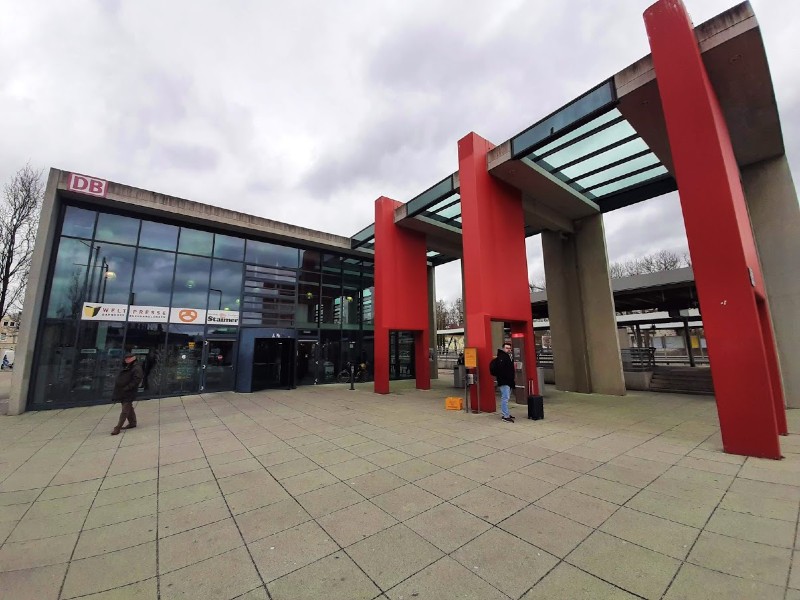
To Buchloe
To reach Landshut, I had to first go to Munich and change trains there.
Although there are a few direct Memmingen to Munich trains, these did not run at the time of the day I was travelling, which meant I had to make one additional change of trains at Buchloe.
My first train therefore was the Memmingen to Augsburg train, which halts at Buchloe some 45 minutes after departure.
The train was a typical German Regionalbahn (RB) train with blue-and-black coloured seats. Not the most comfortable of trains, but not bad either.
The great thing about train travel in Germany is that you are free to bring your own picnic and drinks on board.
For Germans – and especially Bavarians – it is the most normal thing in the world to open a bottle of beer in the train!


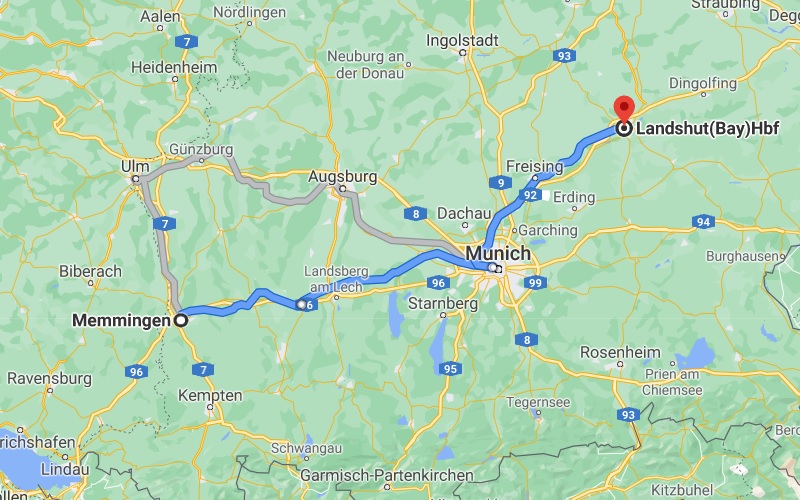
Changing trains
Despite the German Railways route planner giving only 3 minutes at Buchloe to change trains, this is actually easily doable.
My Memmingen-Buchloe-Augsburg train was the first to arrive at the train station in Buchloe, with the Kempten-Buchloe-Munich train pulling in at the opposite side of the platform a minute later.
The connection at Buchloe might seem short on paper, but remember that walking to another platform at a small railway station literally only takes a few seconds to a minute at most.
In this case, it is even a sort-of ‘protected’ connection.
If my Memmingen to Augsburg train would run 5 minutes late, the Kempten-Munich train would delay its departure as well given there are many connecting passengers changing trains at Buchloe.
Indeed, there were many people from the Kempten train changing at Buchloe for Augsburg, while more than half of the people on my Memmingen to Augsburg train disembarked at Buchloe and made the change to the Munich-bound train.
The German Railways have many more of such protected connections in which they will hold the train for a little longer if there is a minor delay.
The Buchloe to Munich train I took was operated by ALX (Alex – Die Länderbahn) and turned out to be a large train consisting out of wagons with old-fashioned compartments.
Although having quite a bit of wear-and-tear, these seats are extremely comfortable.
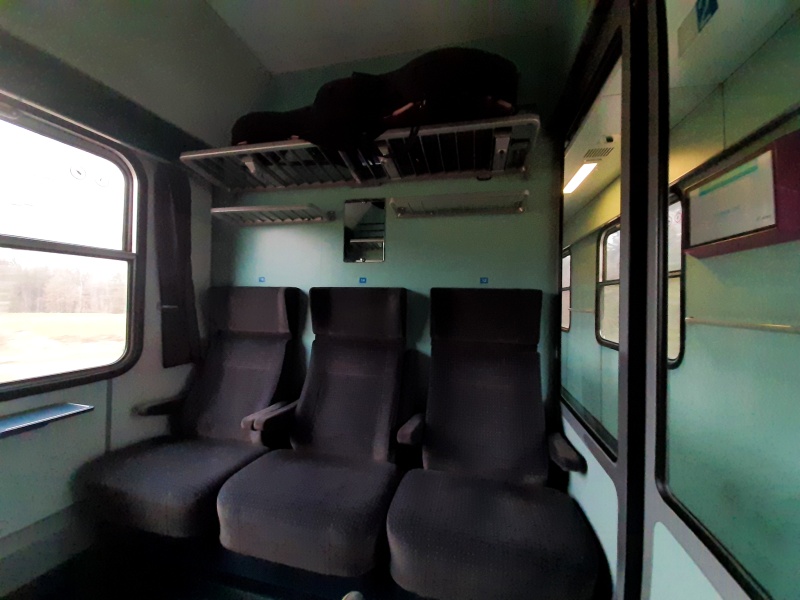
A jaunt into Munich
Although my original plan was to change trains at Munich’s main station (called Hauptbahnhof – abbreviated as Hbf – in German) and head to Landshut, I came up with a different idea.
Given that I had a Bavaria ticket, I could easily take a later train the same day as well, so why not head into Munich for a quick beer?
The great aspect of the Bavaria Ticket is that all local transport is included as well, so I could just hop on the city’s metro without having to buy another ticket.
Two metro stops later and I found myself at Marienplatz – Munich’s central square.
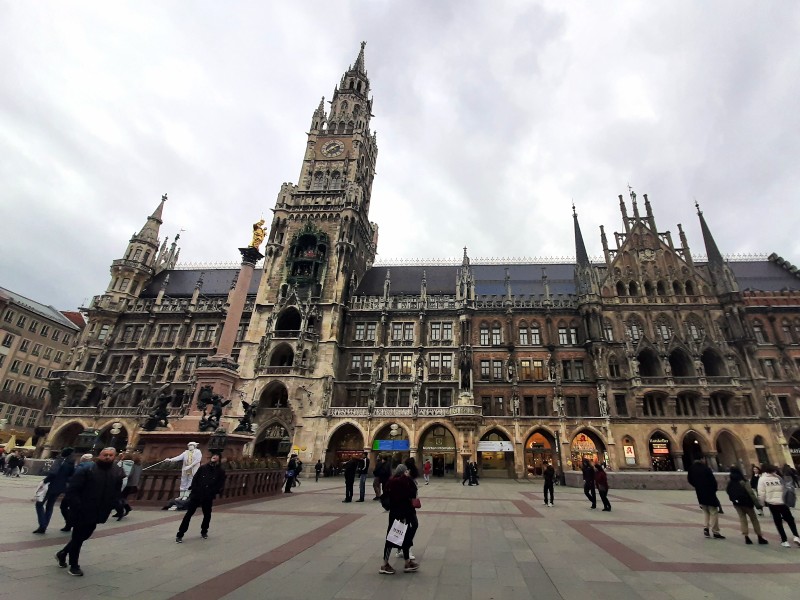
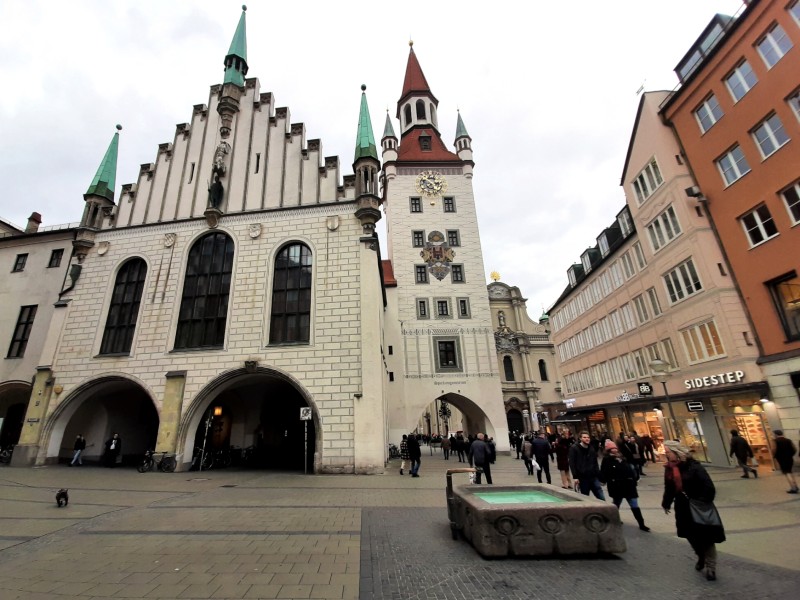
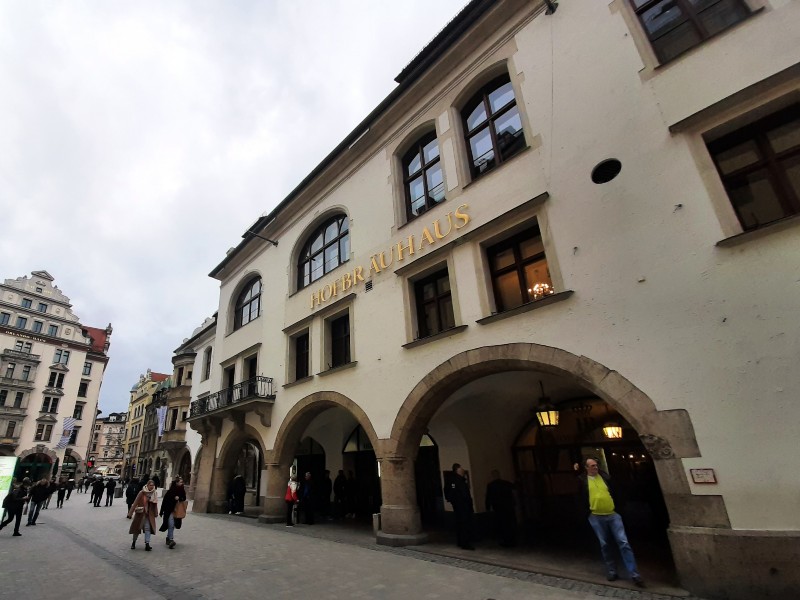
Time for a beer
The reason behind my spontaneous jaunt into Munich was my realisation that I never visited the Hofbrauhaus, a 16th century beer hall which is famous across the world.
Normally I would visit one of the many other beer halls and cellars in Munich (such as the Paulaner Bräuhaus or my favourite the Augustiner Keller) on trips to the Bavarian capital and for some reason always avoided the Hofbrauhaus, perhaps out of fear of finding it too touristy being overcrowded with Americans and Chinese tourists instead of being home to beer-guzzling Bavarians.
Fortunately, on this Friday in March it was not the case at all, as most of the people inside seemed to be Germans (both locals and tourists from out of state).
Although the Hofbrauhaus was terribly crowded this late afternoon, I managed to find an empty seat at one of the tables.
One thing which foreigners should understand about Bavarian beer hall culture is that all tables are basically communal.
If you see for example a couple being seated at a table of four, they are still expected to welcome two other guests at their table.
Beer halls are not the place to go to for a quiet dinner and privacy!
The only exception are the tables marked as Stammtisch (regulars’ table).
These tables are kind of informally reserved for regulars – most often a group of older gentlemen who deserved their own table after many, many years of daily visits.
Although you can sit down here sometimes when the table is unoccupied (this varies between each beer hall/pub) you are certainly expected to vacate the table when the regulars show up for their daily beers!
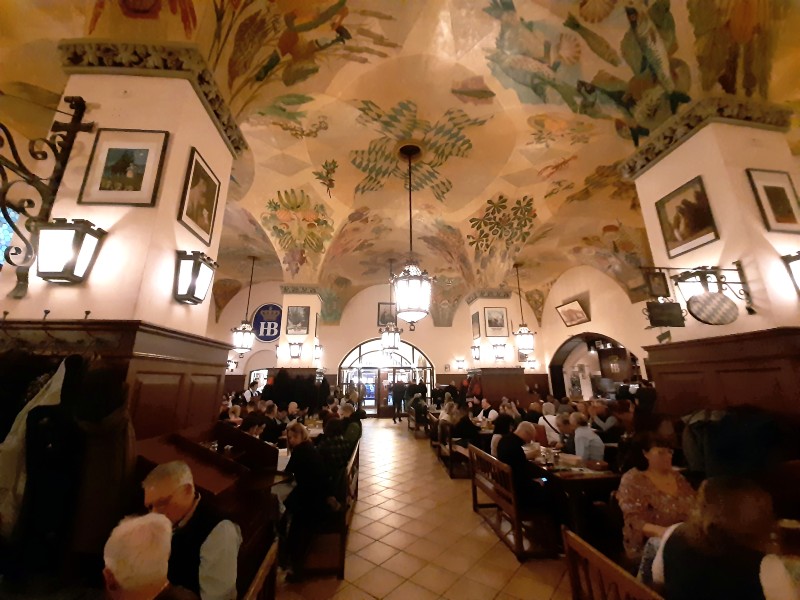
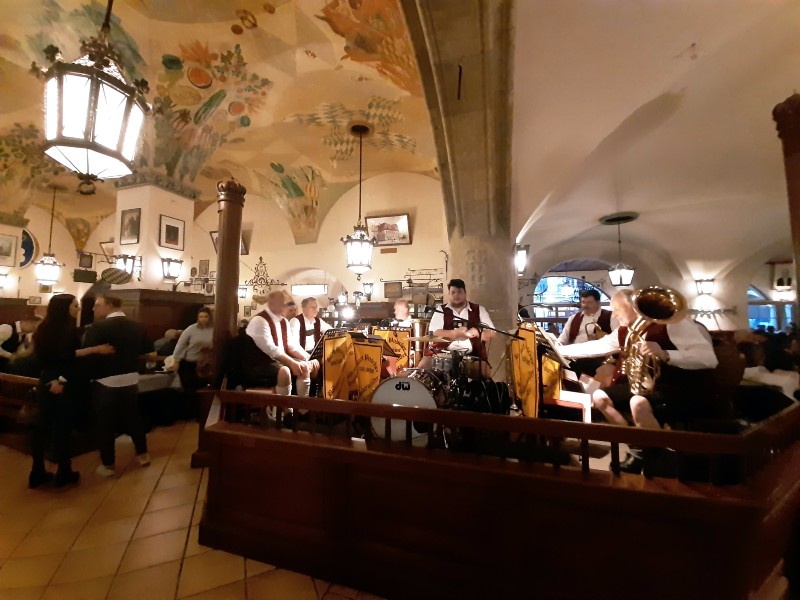
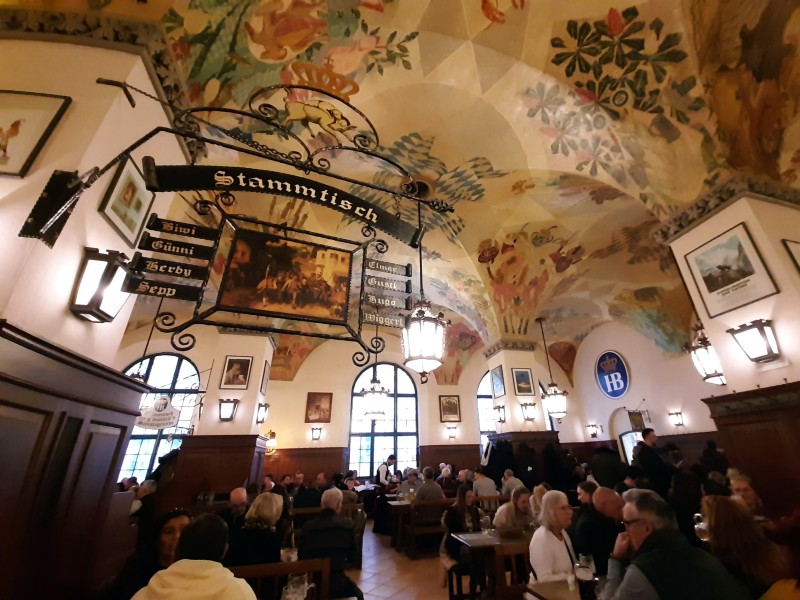
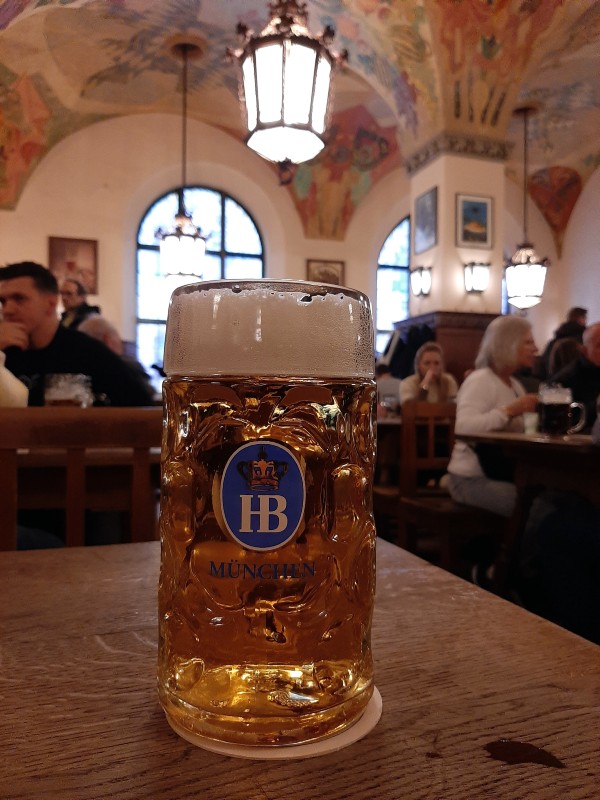

From Munich to Landshut
After one or two beers at the Hofbrauhaus, it was time to head back to München Haubtbahnhof to catch a train to Landshut.
This train was again operated by Alex and had comfortable saloon car seats.
Armed with another beer from a train station kiosk, the journey to Landshut went by fast.
From Landshut Hbf, the bus to my city centre hotel was of course also included in the Bavaria Ticket.

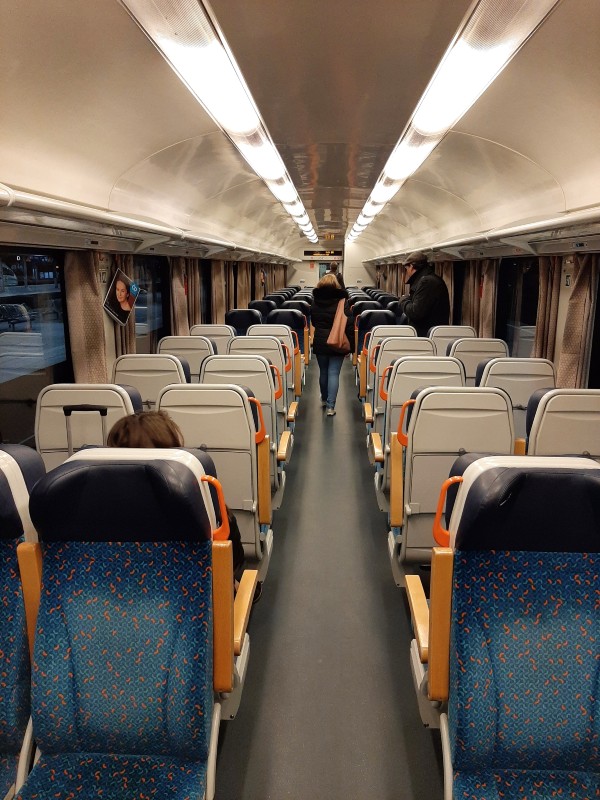
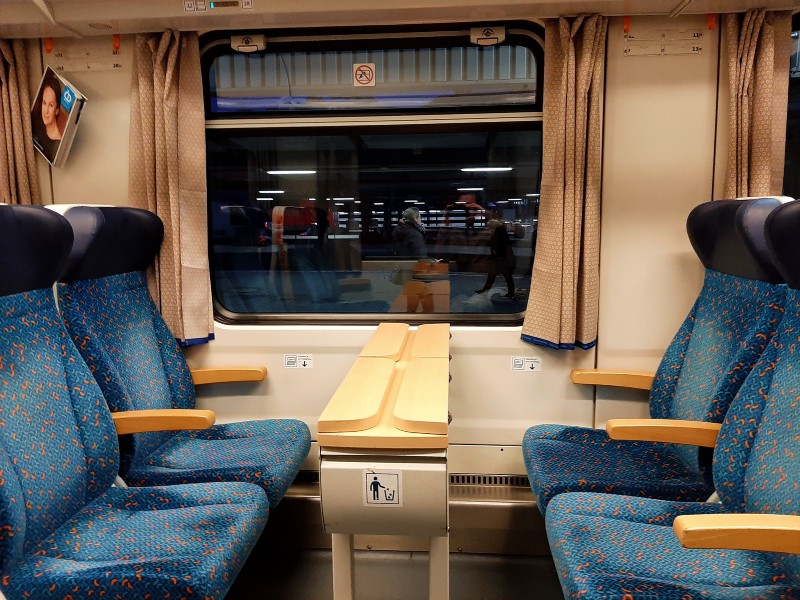
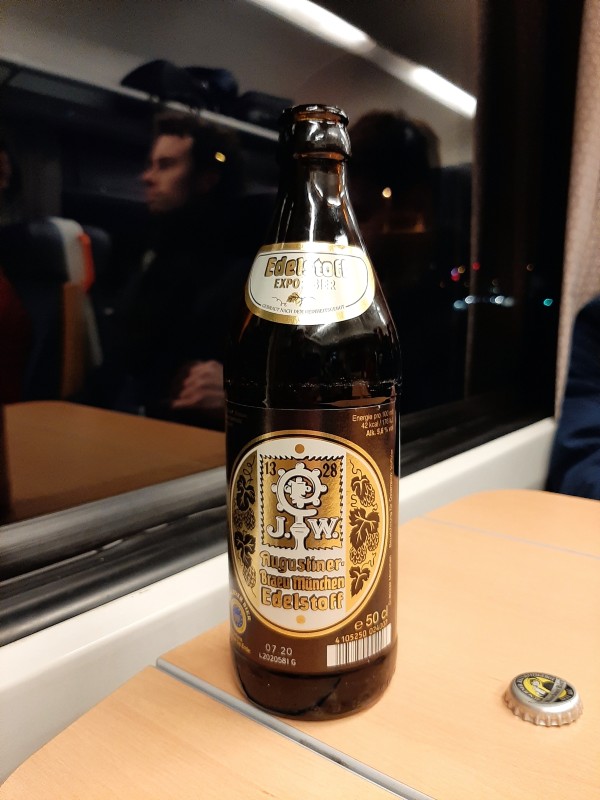
In short
The Bavaria Ticket is a great option if you want to travel cheaply by train across this German state.
Especially for families and groups it is excellent value as you only pay a small surcharge for each additional passenger.
Another great aspect of the Bavaria Ticket is its flexibility, as you can take almost any train you want.
I certainly made us of that flexibility on my trip by spontaneously deciding to hop into Munich and to take a later train to my final destination of Landshut.
It makes the Bavaria Ticket not only worth considering if you need to travel between to places within the state, but also when you want to be fully flexible and are likely to adjust plans on the spot.
There are almost a dozen of variants of the Bavaria Ticket, and knowing exactly what kind of tickets there are and what the terms and conditions are of each offer will certainly come in handy during your trip to Germany’s largest state.
Trip report index
This article is part of the ‘An Adriatic Adventure: Off-Season Travel to Dubrovnik, Montenegro and a Bit of Bavaria‘ trip report, which consists of the following chapters:
1. Review: MasterCard Business Lounge Bucharest Otopeni Airport
2. Review: Aegean Airlines Economy Class Bucharest to Athens (Airbus A320)
3. Review: Aegean Business Lounge Athens Airport Hall A (Non-Schengen)
4. Review: Olympic Air Economy Class Athens to Dubrovnik (Bombardier Dash 8-400)
5. Review: Apartments Festa, Old Town of Dubrovnik
6. A Dubrovnik Winter Trip: Off-Season Travel Away from the Tourist Crowds
7. Review: Dubrovnik (Croatia) to Kotor (Montenegro) by Bus
8. Review: Palazzo Drusko Deluxe Rooms, Kotor, Montenegro
9. Kotor, Montenegro: Old Town Charm in Europe’s Most Spectacular Scenery
10. Cetinje – The Old Royal Capital of Montenegro
11. Review: Ramada by Wyndham Podgorica, Montenegro
12. Podgorica: Is the Capital of Montenegro Worth a Visit?
13. Review: Wizz Air Podgorica to Memmingen (Airbus A320)
14. Memmingen: More Than Just a Low-Cost Airport Close to Munich
15. The Bavaria Ticket: Unlimited Train Travel Across the German State of Bayern (current chapter)
16. Review: Michel Hotel Landshut, Bavaria, Germany
17. Landshut: Bavaria Off The Beaten Track
18. Review: Air France/KLM Lounge Munich Airport
19. Review: Air France Economy Class Munich to Paris CDG (Airbus A319)
20. Review: Air France Business Lounge Paris CDG Airport Terminal 2E – Hall L
21. Review: Air France Economy Class Paris CDG to Bucharest (Airbus A320)


Koen, why am I surprise that this was your first visit to the Hofbrauhaus 😉
One other thing I’ve done with these tickets is buy them for adjoining states when I want to cover distance when I’m not in a hurry. It’s also a good way of being able to get off, have a meal – or a beer or three and then continue your journey. Particularly at the weekend you can cover quite a big distance during the validity and you see far more than you will from the ICE.